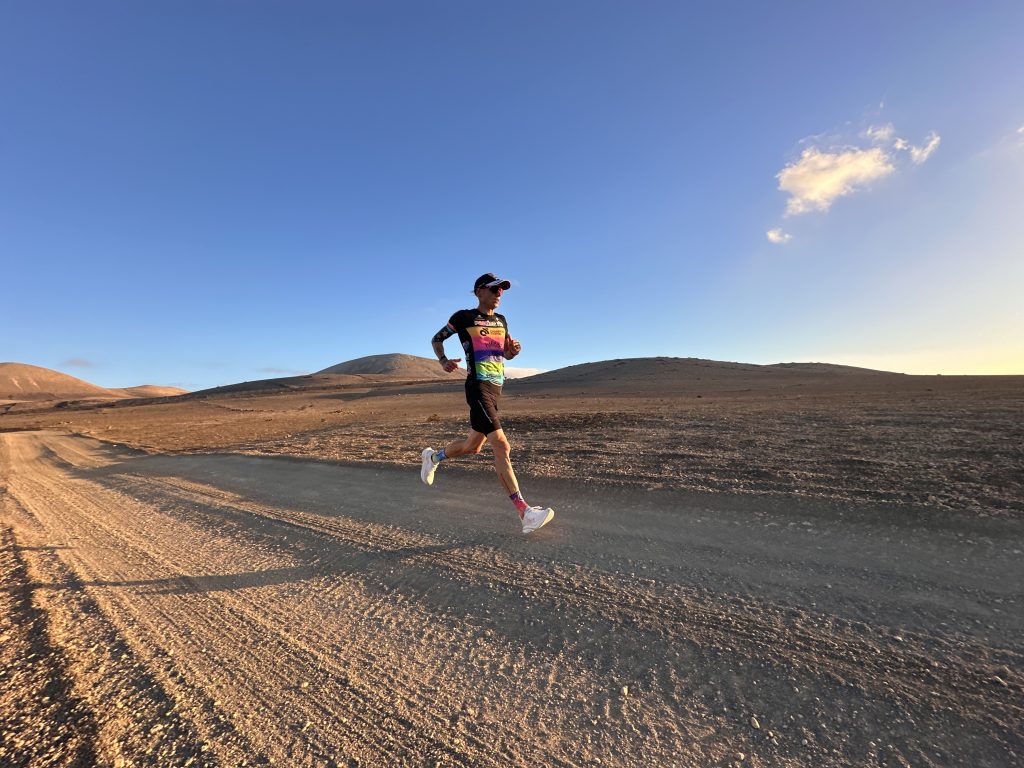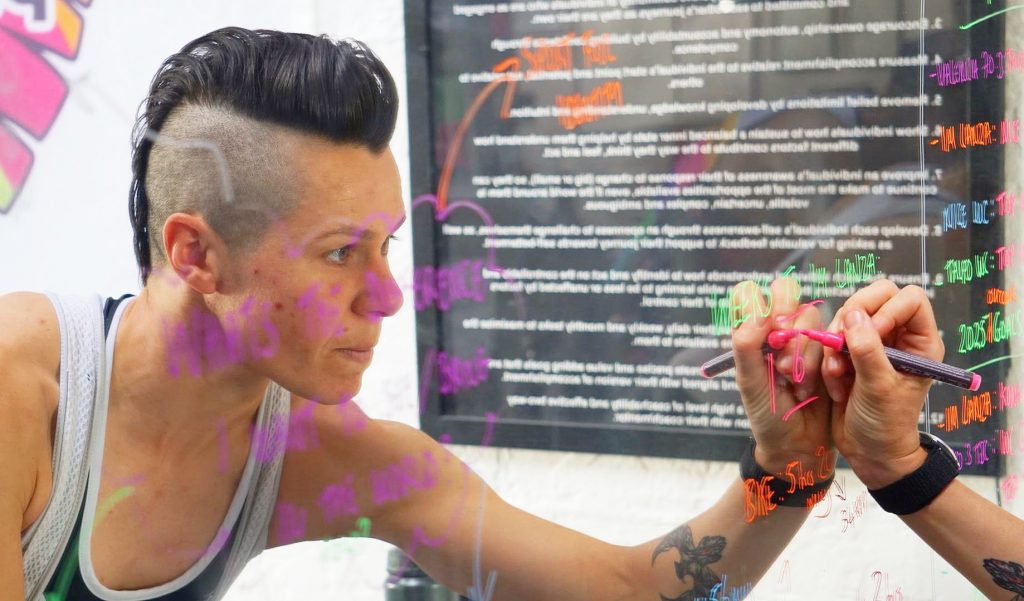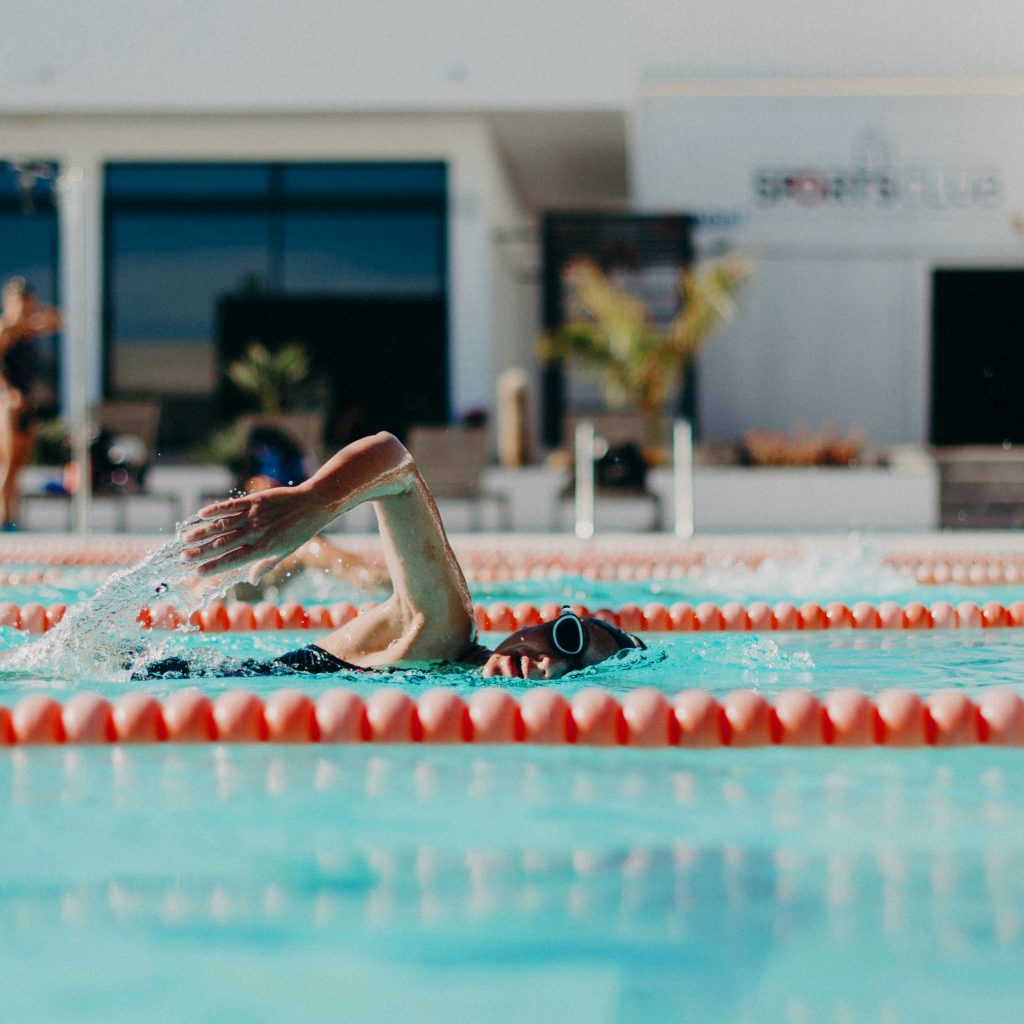Lydia Dant, Passion Fit coach, Passion Fitting bike fit specialist
Thinking through the winter season of training to set you up for your best possible season of racing.

With the last of the northern hemisphere races having come to a close and snow already on the ground in the UK, its the time of year that triathletes to think about the ‘off season’ and winter training.
Social media is full of posts from triathletes on off season with activities like catching up with family and friends and having days off without swim/bike/run focus. But there is also a strong theme around having a few beers and burgers… because its ‘off season’. Don’t get me wrong, I approve, and I always enjoy having a few too many G&Ts at the Passion Fit end of season awards night (and usually followed by pizza at 4am).
But, at what point does the off season no longer become off season? How can athletes use this time as constructively as possible? And what are the key areas to structure so that we can set next season up well?
For me, this transition came through renaming the phase of the training year I was in, and I chose the term “Skills Season”. I identified key areas to work on that were suitable for my Skills Season. Just using a different phraseology has been a key game changer in my mindset towards this time of year.
Outlining this really simply has helped me to frame and set my goals according to the phase of the season I am in. Instead of being concerned about what other people are doing at this time of year and getting distracted with doubts (eg. I am not doing enough, doing too much, training too hard or training too easy) this has allowed me to remain focused solely on my own development.

The seasonality of a triathlon year
Have a vision over your short, medium and long term goals which are not necessarily race or deadline specific. Understanding these helps to frame how Skills Season should look.
Instead of having an ‘off season’ and a ‘race season’ break this into more phases that can be applied at different moments in time. These “seasons” can be applied at any time throughout the year and with varying durations, they are not bound with the meteorological seasons. In my case, my race season could begin in January and span through to October or November. This makes it a long season. If you have goal races spread across the year like this, then it is important to consider which phase you are in so you can focus on the right aspects to be able to peak and recover well and crucially, continue developing.
Below are some of the key concepts that are applicable to each of the season types:
Off Season
‘The unstructured down time’ following the last race of the season or going into a mid season break
- Focus on other parts of your life that might need a little TLC i.e. catching up with family/ friends
- Unstructured training, based on what you feel like doing but nothing at high intensity
- Prioritise sleep and recovery
- Take a bit of space to fully unwind and relax
- Time to reflect on the season or races you have completed
- Enjoy the end of season party/ equivalent
- Start to develop Skills Season goals
- Be at the point of feeling the itch again to get back into training, then wait a little bit longer before heading into Skills Season
Be at the point of feeling the itch again to get back into training, then wait a little bit longer before heading into Skills Season
Skills Season
- Semi unstructured but start to develop a daily pattern, nothing is essential
- Embedding good habits ready for when training ramps up.
- Meal planning and prep, weekly training and work patterns, time management.
Goals developed for this time of year:
- Underpinned by next season aims and focused on quality
- Baseline key tests that will be repeated across the season to identify progression
- Personal development areas identified
- Review of kit choices
Technical competency, functional movement and conditioning focus on weaker areas:
- Utilising the opportunity to perform these exercises with high quality whilst the volume/ fatigue is lower
Training is quality focussed, capitalising on this whilst overload of bigger blocks is reduced:
- Form should not be comprised and is the overarching focus
- Athlete should not be overreaching
- Ethos of, it is better to ride 20w lower or run 1 kph slower to maintain good form– the constructive vs destructive trade off
Build Season
- Form is still the overarching focus
- Start to introduce a greater degree of intensity and specificity across key sets
- This could be the shift from form focused trail running back to road running with a higher degree of specificity towards the race type that is being trained for
- Goals have shifted to generate a solid baseline fitness ready to cope with pre season or building towards a warm weather training camp
- Retest key baseline sets
Pre-Season
- This could focus around going on a warm weather training camp or having a similar block of higher volume training
- Consolidation of the preceding blocks where the form and last fitness gains are being squeezed out
- Some key activities might include; race specific sets or days, full testing of race kit
- This is more the fine tuning and finessing of any fitness gains that have been made through the preceding blocks
Race Season
- Key focus on maintaining fitness and peaking for races
- Two phases within race season – build and peak
- Not training to build further fitness (dependent on the gap between races) but to maintain and keep sharp
- Find balance to be sharp for races and not fatigued from overtraining
- Develop intuition about rest and recovery
- Enjoy being able to race knowing that the hard work of the preceding blocks should come to fruition!

And then back to off season…where the fun starts again.
So why is this important to understand?
Even if you have a coach, as an athlete you should be taking ownership of your own development; wanting to learn and deepen that understanding. These phases will look different to each athlete and depend on many different factors. But if you know why your training is structured the way it is that will give you a better feel for how to progress as an athlete to reach your potential and goals.

About the author
Lydia is a professional triathlete, bike fitter and coach. She started triathlon in 2018 as a novice triathlete with the goal to complete Ironman Wales. By 2021, she was racing on an elite license and in 2022, made her debut over full distance at Ironman Lanzarote and took 1st place in the professional field. Alongside her triathlon career, she is a bike fitter and supports athletes across a range of sports with their athletic and personal development journey. This is the piece that means the most, helping others to see and unlock a potential in themselves that they might have ever imagined…
Want your content featured?
If you would like to input to our Coaches’ Hub – or there is a topic you would like us to write about – why not send us your ideas? We are always looking for good content and it helps to promote your business.
Email: caroline@trainxhale.com

